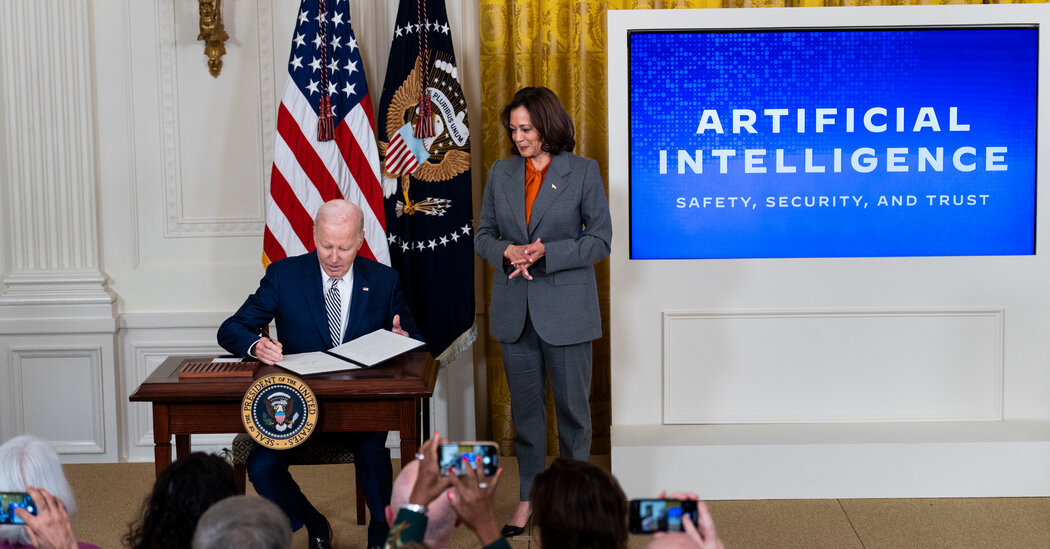
The sweeping order is a first step as the Biden administration seeks to put guardrails on a global technology that offers both great promise and significant danger.
President Biden signed a far-reaching executive order on artificial intelligence on Monday, requiring that companies report to the federal government about the risks that their systems could aid countries or terrorists to make weapons of mass destruction. The order also seeks to lessen the dangers of “deep fakes” that could swing elections or swindle consumers.
“Deep fakes use A.I.-generated audio and video to smear reputations, spread fake news and commit fraud,” Mr. Biden said at the signing of the order at the White House. He described his concern that fraudsters could take three seconds of a person’s voice and manipulate its content, turning an innocent comment into something more sinister that would quickly go viral.
“I’ve watched one of me,” he said, referring to an experiment his staff showed him to make the point of how a well-constructed artificial intelligence system could manipulate speech. “I said, ‘When the hell did I say that?’”
The order is an effort by Mr. Biden to show that the United States, considered the leading power in fast-moving artificial intelligence technology, will also take the lead in its regulation. Already, Europe is moving ahead with rules of its own, and Vice President Kamala Harris is traveling to London this week to represent the United States at an international conference organized by Britain’s prime minister, Rishi Sunak.
“We have a moral, ethical and societal duty to make sure that A.I. is adopted and advanced in a way that protects the public from potential harm,” Ms. Harris said at the White House. She added, “We intend that the actions we are taking domestically will serve as a model for international action.”
But the order issued by Mr. Biden, the result of more than a year of work by several government departments, represents something of a first draft. While Mr. Biden has broad powers to regulate how the federal government uses artificial intelligence, his ability to reach into the private sector is limited. He acknowledged that while his order “represents bold action, we still need Congress to act.”
Still, Mr. Biden made it clear that he intended the order to be the first step in a new era of regulation for the United States, as it seeks to put guardrails on a global technology that offers both great promise — diagnosing diseases, predicting floods and other effects of climate change, improving safety in the air and at sea — and significant danger.
“One thing is clear: To realize the promise of A.I. and avoid the risks, we need to govern this technology,” Mr. Biden said. “There’s no other way.”
